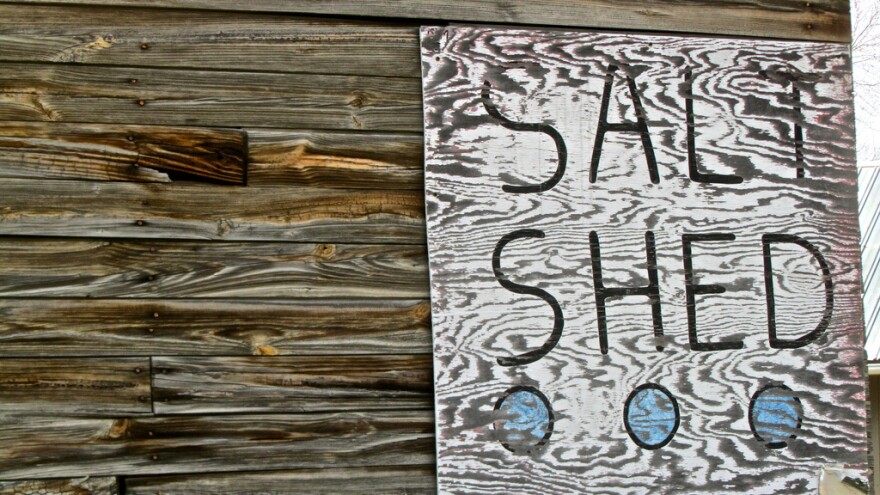2015 marks the 150th anniversary of the end of the Civil War. While many of us remember the war in terms of battles and lives lost, people of the era also had to deal with the business of everyday life, including what to have for dinner. We spoke with Helen Veit, editor of Food in the Civil War Era: the South, who explained that the Civil War changed how and what Southerners ate - and how Southern cuisine never really changed back. Here are three cooking trends from the Civil War era South that you can try in your very own kitchen.
Salting

Preservation techniques essential to a 19th century way of life became an integral part of Southern cooking. Helen Veit explained why salting, a popular way to preserve meat, suddenly became much more difficult during the civil war:
Southerners had imported almost all of their salt. They’d mainly imported it from Wales, in fact. So once the Northern blockade around Southern shores cut off imports from Europe Southerners had to scramble to find a way to preserve their food.
To deal with the salt shortage, Southerners tried to find salt any way they could. They boiled down salt water, eked salt out of salt sacks, and even pulled floors up out of salt sheds to look for any crystals left over from previous seasons.
Even though salting became more rare, preservation is still a huge part of the Southern food tradition. Veit grew up in North Carolina and listed some of her quintessential Southern foods: sausage, homemade liquors, jams, salted foods, smoked foods; all foods that rely on preservation, even though it's no longer necessary for most people.
Squirrels

Meat was at a premium during the war, especially in Southern states which had depended on the Midwest for much of their beef and pork. In lieu of these meats, people turned to more local options. One section of the book details all the ways one might choose to cook squirrel: pies, fried, fricassee...
When we asked her whether she thought that anyone might try to whip up their own version of Squirrel Fricassee, Veit explained:
I do think there is growing interest, even among people today who don’t have to eat squirrels for any reason, in sort of thinking more broadly about what kinds of foods are edible, what kinds of foods are acceptable and also what body parts.
If you’re feeling adventurous, here’s a Civil War era recipe for Fricassee of Squirrels:
Put two young squirrels into a pot with two ounces of butter, one or two ounces of ham, some salt and pepper, and just enough water to cover them. Let them stew slowly until tender. Take them up, and pour half a teacup of cream and a beaten yolk of egg into the gravy, and when it has boiled five minutes, pour over the squirrels in the dish. Some persons prefer a wineglass of red wine, and omit the cream and egg.
Some persons also prefer to just leave squirrels in the yard.
Mock Apple Pie

During the Civil War many Southerners just went without, but that didn’t stop them from recreating recipes in other ways. Mock Apple Pie, or Apple Pie Without Apples, pre-dates the Civil War, but the war helped to make it popular. We used an updated version of the recipe we found online and were surprised by the results: it’s pretty delicious.

To print recipe card, click here.
For those who would like to try an original version, here’s a recipe from Food In the Civil War Era:
Apple Pies without Apples (very good)
One cup of sugar, two cups of water, one cup of bread crumbs, one egg beaten light, and one teaspoonful of tartaric acid. Soak the bread crumbs in the warm water and rub them smooth, and put in the other ingredients, and season with lemon or nutmeg to your taste, and bake with a crust above, as an apple-pie.
Listen to us try Mock Apple Pie and the full conversation between Virginia and Helen Zoe Veit.







